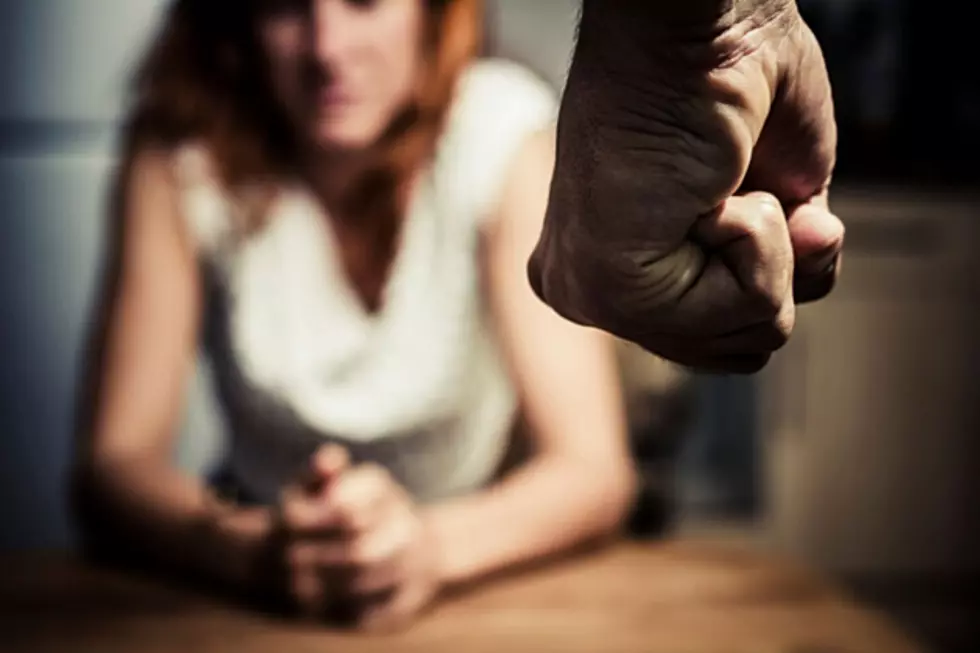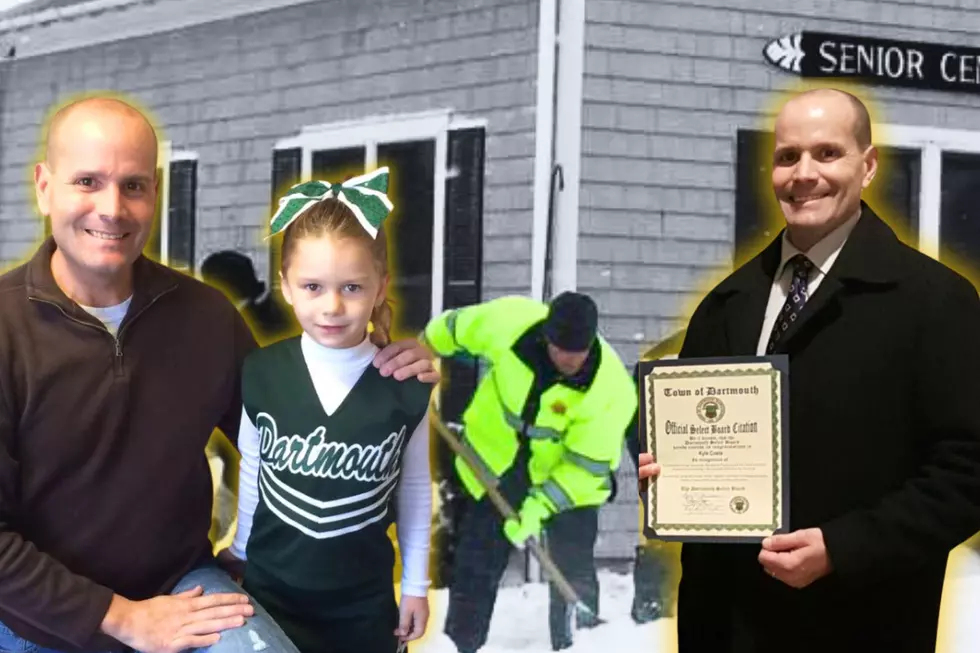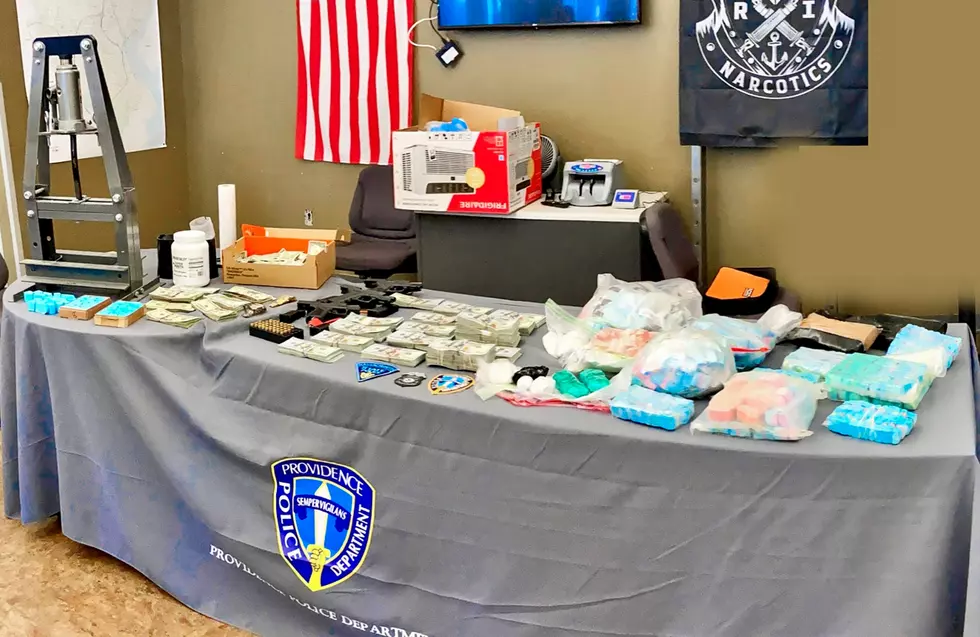
Local Police Department Shares Warning Signs of Domestic Abuse
The following is from a press release sent by the Dartmouth Police Department.
Chief Brian Levesque wishes to share support resources and services for those who may be experiencing domestic violence in recognition of Domestic Violence Awareness month.
According to the National Coalition Against Domestic Violence, more than 10 million people in the United States are victims of physical abuse by a partner each year. On average, one in three women and one in four men experience some form of physical violence by an intimate partner.
“We encourage all residents to review the warning signs of domestic violence and share the resources with anyone they think may need them,” Chief Levesque said. “It is imperative that during this COVID-19 pandemic that people know that resources are still available to them to keep them safe, including us here at the Dartmouth Police Department. If anyone is dealing with domestic violence and wants to speak with someone, they are welcome to call the police department at 508-910-1700."
Know the Signs
The Dartmouth Police Department wishes to share the following domestic violence warning signs and common characteristics of an abusive partner from the National Coalition Against Domestic Violence:
- An abusive partner frequently denies or attempts to minimize the seriousness of violence and its impact on the victim.
- An abusive individual objectifies the victim, viewing that person as property or a sexual object.
- An abusive partner has low self-esteem.
- An abusive partner may blame their violence on stress, alcohol, or other external factors.
- An abusive partner may be perceived as friendly and kind by others, as that individual may be amicable and pleasant in-between abusive events.
Red flags include:
- Extreme jealousy
- Possessive behavior
- Unpredictability
- Short, angry temper
- Cruelty to animals
- Verbal abuse
- Extremely controlling actions
- Non-consensual sex
- Ignoring agreed upon birth control or sabotaging birth control
- Blaming the victim for the abuse
- Preventing the victim from going to work or school
- Financial control
- Abuse of other people and/or animals
- Accusations that the victim is flirting with others
- Control of the victim’s apparel and actions
- Demeaning the victim, privately or publicly, as well as embarrassing that person in front of others
- Harassing the victim at his or her workplace
Resources
Free and confidential support is available 24 hours a day for those experiencing domestic violence, who are questioning unhealthy aspects of their relationship or who are seeking resources or information for a friend or family member:
- In an emergency, call 911.
- For anonymous, confidential help available 24/7, call the National Domestic Violence Hotline at 1-800-799-7233 (SAFE) or 1-800-787-3224. If you’re unable to speak safely, you can chat online, or text LOVEIS to 22522. Additional crisis organizations and helplines can be found by clicking here.
- SafeLink is Massachusetts’ statewide 24/7 toll-free, multilingual hotline and a resource for anyone affected by domestic violence. SafeLink’s 24-hour hotline is available by calling 877-785-2020.
- RESPOND, Inc. is a local domestic violence prevention group that provides free, confidential services and resources for survivors of domestic violence. To learn more, please visit their website at www.respondinc.org or call RESPOND’s Support Line Monday through Friday from 8 a.m. to 8 p.m. at 617-623-5900.
- The Massachusetts Office of Victim Assistance has compiled a list of services by county, which is available online here, as well as lists of community-based resources and residential programs, which can be found here.
The Massachusetts Office of Victim Assistance has also created SAFEPLAN brochures in four different languages. These plans can help connect victims and survivors with needed resources and be prepared in the event of an emergency. The brochures are available in:
- English
- Spanish
- Haitian Creole
- Portuguese
According to the National Domestic Violence Hotline, the number of domestic violence cases is on the rise as a result of Coronavirus and lockdowns across the country. The Dartmouth Police Department would like to share the following warning signs and resources for victims during the Coronavirus Pandemic, as provided by the National Domestic Violence Hotline.
Signs of Abuse During COVID-19:
- Abusive partners may withhold necessary items, such as hand sanitizer or disinfectants.
- Abusive partners may share misinformation about the pandemic to control or frighten survivors.
- Abusers may prevent survivors from seeking appropriate medical attention if they have symptoms.
- Abusive partners may withhold insurance cards, threaten to cancel insurance, or prevent survivors from seeking medical attention if they need it.
- Programs that serve survivors may be significantly impacted –- shelters may be full or may even stop intakes altogether. Survivors may also fear entering shelter because of being in close quarters with groups of people.
- Travel restrictions may impact a survivor’s escape or safety plan – it may not be safe for them to use public transportation or to fly.
- An abusive partner may feel more justified and escalate their isolation tactics.
Resources for Victims During COVID-19:
Create a Safety Plan: A safety plan is a personalized plan that includes ways to remain safe while in a relationship, planning to leave, or after you leave. You can learn more about safety plans here, and you can find an interactive guide to safety planning here. Because there may be limited shelter availability due to COVID-19, consider alternatives such as staying with family or friends, staying in motels, or sleeping in your vehicle. Be extra mindful of good hygiene practices.
Reach Out for Help: While people are encouraged to stay at home, you may feel isolated from your friends and family. Even if you are isolated, try to maintain social connections online or over the phone if it is safe to do so, and try to stick to your daily routines as much as possible. Reach out to friends, family, and hotlines. A list of hotlines can be found here.

More From WBSM-AM/AM 1420



![Fill the Bus Toy Drive Coming to Dartmouth and Fairhaven [TOWNSQUARE SUNDAY]](http://townsquare.media/site/518/files/2022/12/attachment-RS48767_GettyImages-158554501-scr.jpeg?w=980&q=75)

![Dartmouth Police Mark 100 Years of Service [TOWNSQUARE SUNDAY]](http://townsquare.media/site/518/files/2022/09/attachment-Dartmouth-Police-1002.jpg?w=980&q=75)



